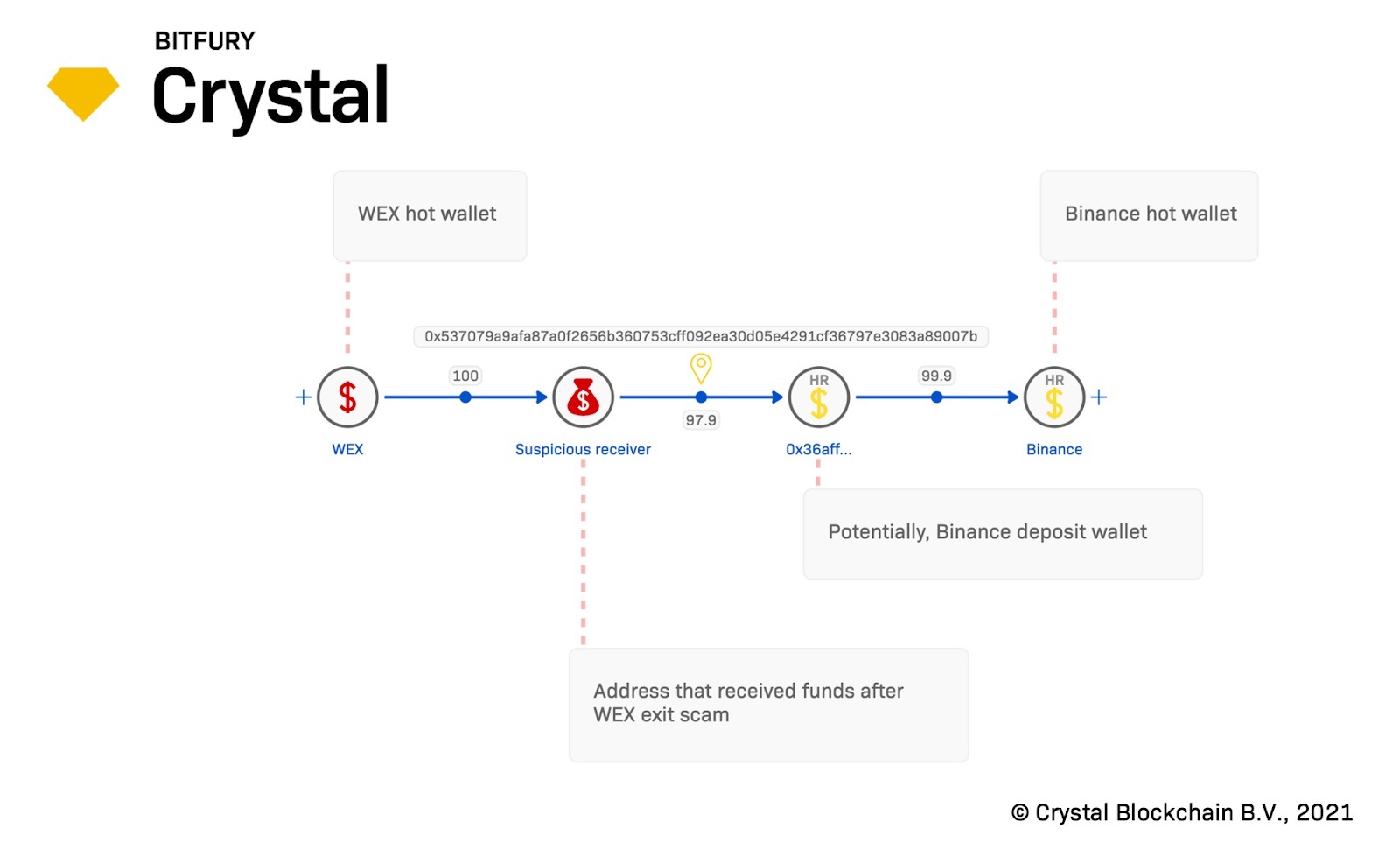
The Russian Ministry of Interior has rejected a request filed by clients of Wex to do its part in the blocking of crypto funds removed from a wallet controlled by the now-defunct crypto exchange. Over 10,000 ETH have been recently withdrawn from the wallet and transferred to other platforms.
Wex Victims Try to Freeze $46 Million of Cryptocurrency Lost to Bankrupt Russian Exchange
The Investigation Department of the Ministry of Internal Affairs of Russia (MVD) has refused to act on a request from victims of crypto exchange Wex to take steps aimed at seizing digital assets worth $45.9 million withdrawn from one of its wallets in September. Details were shared on social media by the CEO of Indefibank Sergey Mendeleev who quoted an official document from the department.
The former Wex users have provided the MVD with a detailed scheme of how the funds were transferred from the wallet to other crypto platforms, Forklog reported. They also submitted data from an analytics tool to prove the coins had been stolen and informed authorities they had reached out to Binance where a portion of the amount, 97.8 ETH, was sent. The crypto exchange froze these assets for a period of seven working days.

Current procedures at Binance allow the company’s security department to temporarily freeze funds after receiving convincing evidence of a theft. Then the party that asked for the measure has to contact relevant law enforcement authorities and return a police report to the crypto trading platform. Binance would then cooperate with investigators to resolve the case.
The Wex clients referred to the Russian Interior Ministry calling for the seizure of the stolen funds. However, according to an official response from the department from Oct. 25, the circumstances set out by the victims need further investigation before authorities can take any action. The MVD believes that a decision to confiscate the assets during the preliminary investigation and based on the available information would be premature.
Crypto exchange Wex is the successor of the infamous BTC-e, once Russia’s largest crypto trading platform, which went offline four years ago. In September this year, reports came out that Wex’s former chief executive, Dmitry Vasiliev, has been arrested in Warsaw. They were later confirmed by Polish authorities which also announced they are reviewing an extradition request submitted by Kazakhstan where he is accused of fraud.
Wex was launched in the fall of 2017 and it reportedly reached a daily turnover of $80 million before it suddenly halted withdrawals in the summer of 2018 and eventually went bankrupt. According to estimates by a group of users quoted by Forklog, the total losses exceed $400 million and Vasiliev is suspected of misappropriating $200 million.
The crypto news outlet reported that 100 ETH had been withdrawn from a Wex wallet in mid-September. That’s the first movement of these funds in the past three years, the publication noted. The remaining balance in the wallet, 9,916 ETH worth $30 million at the time, were also transferred to a new address a few days later.
Do you think Wex clients will convince Russian authorities to take action to freeze and seize the funds withdrawn from the exchange’s wallet? Tell us in the comments section below.
Image Credits: Shutterstock, Pixabay, Wiki Commons
Disclaimer: This article is for informational purposes only. It is not a direct offer or solicitation of an offer to buy or sell, or a recommendation or endorsement of any products, services, or companies. Bitcoin.com does not provide investment, tax, legal, or accounting advice. Neither the company nor the author is responsible, directly or indirectly, for any damage or loss caused or alleged to be caused by or in connection with the use of or reliance on any content, goods or services mentioned in this article.
Read disclaimer


